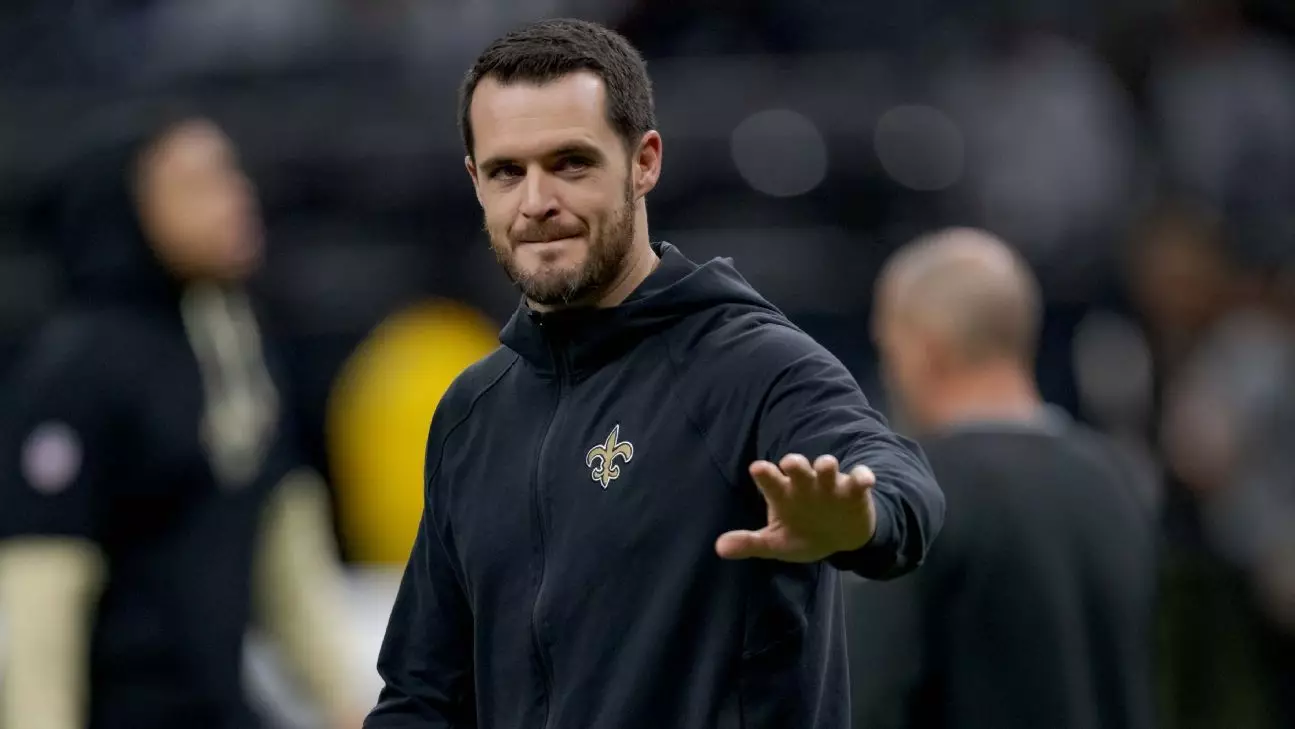The offseason for professional athletes is typically a time for rejuvenation and adaptation, yet for New Orleans Saints quarterback Derek Carr, recent events have turned this period into a complex emotional landscape. Carr’s disclosure of a shoulder injury during a sermon in Las Vegas highlights a significant personal and physical challenge. It marks the first official acknowledgment of an issue that has been the subject of rampant speculation since early April, just before the Saints kicked off their voluntary offseason workouts. This situation brings to light not just the mental fortitude required of elite athletes, but also the pressing need for transparent communication between players and media.
The Media and Speculation
Carr’s remarks about the sensationalism surrounding his injury raise pertinent questions about the role of the media in covering athletes’ lives. By voicing his frustrations toward ESPN and various outlets for spreading speculation without substantiation, Carr shines a spotlight on a prevalent issue in sports journalism: the tendency to prioritize drama over accurate reporting. His insistence on the legitimacy of his situation, complete with an MRI report to back it up, reveals a deep desire for more responsible reporting that respects the nuances of an athlete’s life beyond the field. This critique is crucial, highlighting the delicate balance that needs to be struck between public interest and the right to privacy.
Personal Challenges Amid Professional Pressures
Compounding Carr’s physical challenges is the personal turmoil faced by him and his family. Announcing the miscarriage of his child during what should be a joyous time adds another layer of depth to his story. This reality check is vital, reminding fans and commentators alike that athletes are human beings with lives that go beyond their professional duties. Carr’s call for empathy—“let’s be people that don’t judge” —resonates on multiple levels, highlighting the importance of compassion and understanding amid the pressures of the sports world. It prompts a larger dialogue about how we process the personal hardships of public figures, an area often overshadowed by their athletic prowess.
The Competitive Landscape
Adding fuel to the conversation is the Saints’ recent quarterback draft pick, Tyler Shough. The organization has made it clear that there will be competition for the starting position, which raises the stakes for Carr as he navigates not only his rehabilitation but also the implications on his future with the team. General Manager Mickey Loomis’ statement that Carr remains the starter, despite whispers of competition, suggests a complex interplay between trust, performance, and leadership. It begs the question of how Carr’s injury status will affect the team dynamics moving forward.
A New Direction
In the face of these trials, Carr appears committed to maintaining his priorities: “faith, family, football.” This mantra is not just a cliché; it’s a call to action that prioritizes well-being over sport. As he moves forward, it will be interesting to see how Carr manages these competing elements—not only striving for recovery and performance as a starter but also navigating his personal life with resilience. His story is a powerful reminder that our idols are often grappling with dilemmas that mirror our own struggles, demanding a deeper level of understanding and support from fans and media alike.


Leave a Reply